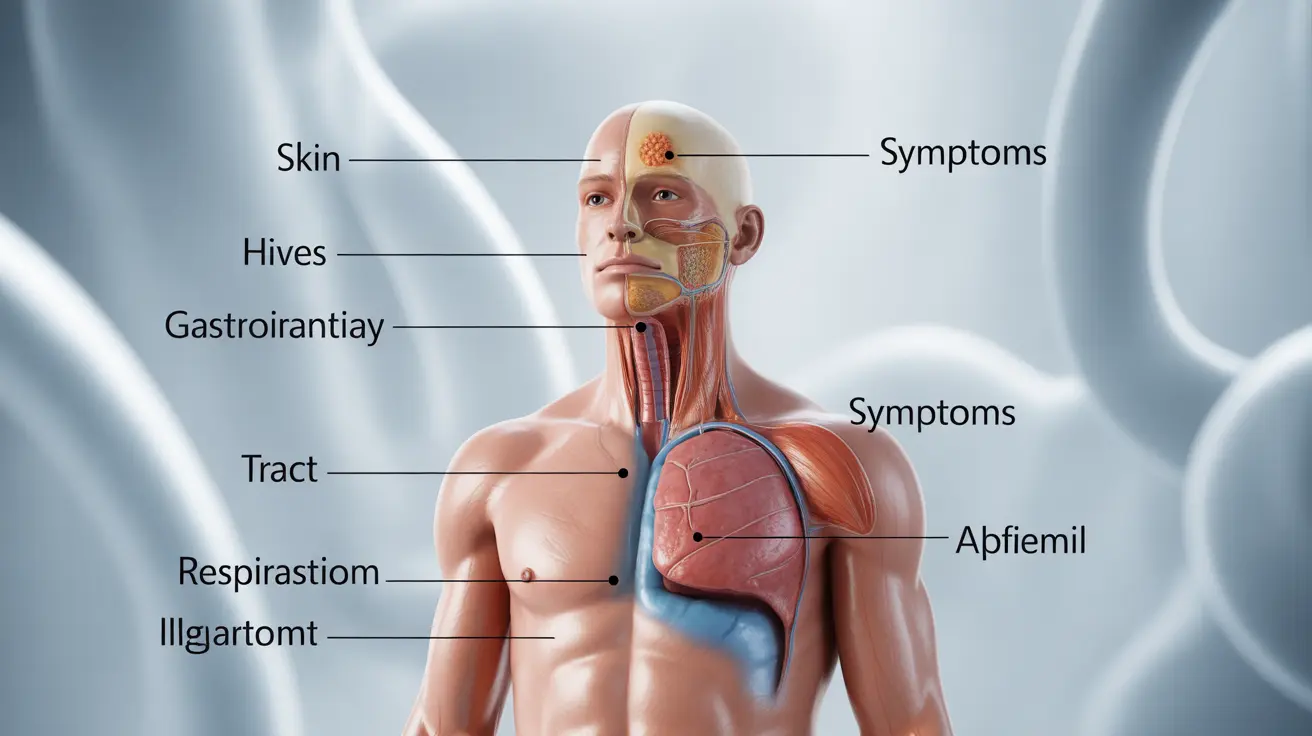Living with mast cell activation syndrome (MCAS) can be challenging and often confusing due to its wide range of symptoms. This comprehensive guide will help you understand the key symptoms of MCAS, recognize potential triggers, and know when to seek medical attention.
As a complex condition affecting the body's mast cells, MCAS can manifest differently in each person, making it crucial to understand its various presentations and warning signs.
Common MCAS Symptoms by Body System
Skin-Related Symptoms
The skin often shows the first signs of MCAS, with symptoms including:
- Hives or rashes that come and go
- Flushing or redness
- Itching (with or without visible rash)
- Angioedema (swelling under the skin)
Gastrointestinal Manifestations
Digestive symptoms are extremely common in MCAS and can include:
- Nausea and vomiting
- Abdominal pain
- Diarrhea or constipation
- Bloating and gas
- Food intolerances
Respiratory Issues
Many MCAS patients experience breathing-related symptoms such as:
- Wheezing
- Shortness of breath
- Throat tightness
- Chronic cough
- Nasal congestion
Understanding MCAS Triggers
Identifying triggers is crucial for managing MCAS symptoms. Common triggers include:
- Environmental factors (heat, cold, sunlight)
- Strong emotions or stress
- Physical exertion
- Certain medications
- Specific foods and beverages
- Chemical sensitivities
Emergency Warning Signs
Some MCAS symptoms require immediate medical attention. Watch for:
- Severe difficulty breathing
- Rapid drop in blood pressure
- Loss of consciousness
- Severe chest pain
- Anaphylactic reactions
Managing MCAS Through Diet
Dietary modifications can play a significant role in symptom management. Consider these strategies:
- Keep a detailed food diary
- Follow a low-histamine diet when recommended
- Avoid common trigger foods
- Work with a healthcare provider to develop a safe meal plan
Treatment Approaches
MCAS treatment typically involves multiple strategies:
- H1 and H2 antihistamines
- Mast cell stabilizers
- Lifestyle modifications
- Trigger avoidance
- Emergency medications when needed
Frequently Asked Questions
What are the most common symptoms of mast cell activation syndrome (MCAS) and how do they feel?
The most common MCAS symptoms include hives, flushing, gastrointestinal issues like nausea and diarrhea, breathing difficulties, and fatigue. These symptoms often feel like severe allergic reactions and can affect multiple body systems simultaneously.
What triggers can cause MCAS symptoms, and how can I identify and avoid them?
Common MCAS triggers include certain foods, medications, environmental factors, stress, and physical exertion. Keeping a detailed symptom diary and working with healthcare providers can help identify personal triggers. Once identified, creating an avoidance plan is essential for symptom management.
When should someone with suspected MCAS seek emergency medical care for their symptoms?
Seek immediate medical attention for severe breathing difficulties, rapid blood pressure drops, severe chest pain, loss of consciousness, or signs of anaphylaxis. Having an emergency action plan and carrying prescribed emergency medications is crucial.
How is mast cell activation syndrome (MCAS) different from regular allergies or mastocytosis?
Unlike typical allergies, MCAS symptoms can occur without specific allergen exposure and affect multiple body systems. While mastocytosis involves an abnormal increase in mast cells, MCAS involves normally-numbered but hyperactive mast cells that release excessive chemical mediators.
Are there dietary changes or specific foods that people with MCAS should consider to help manage symptoms?
Many MCAS patients benefit from following a low-histamine diet and avoiding individual trigger foods. Working with a healthcare provider or registered dietitian can help develop a personalized diet plan that identifies safe foods while ensuring proper nutrition.




